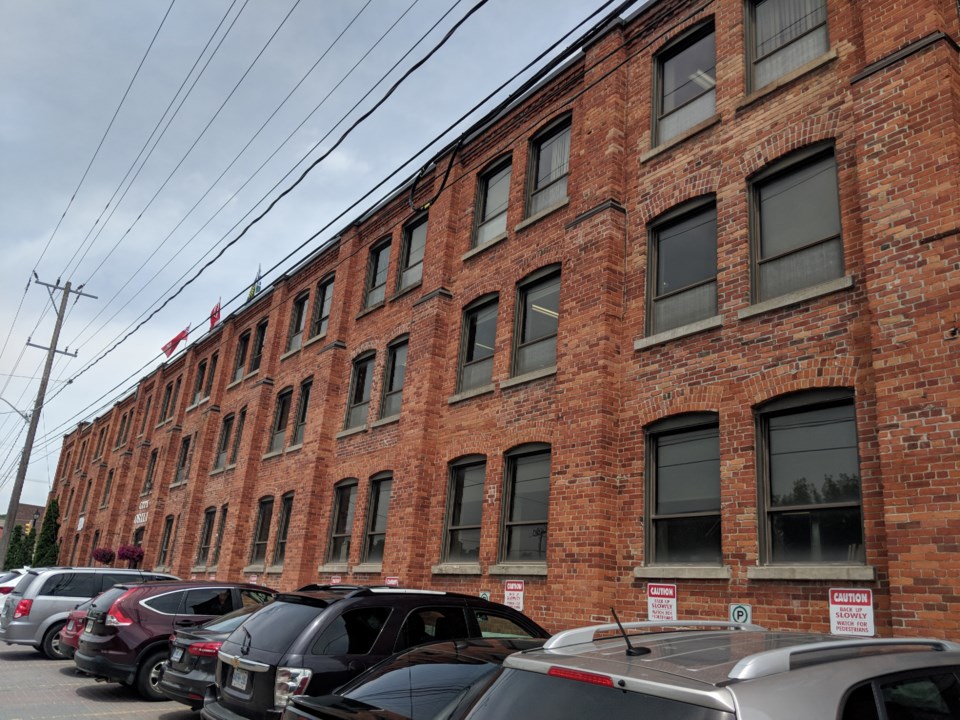During an annual review of the city’s climate change actions, Coun. Tim Lauer asked how the city is faring on meeting its targets to mitigate and adapt to climate change locally.
When the city adopted its Climate Change Action Plan in 2022, it set targets to reduce emissions to one-third below 2018 levels by 2030, and to achieve net-zero emissions by 2050.
“I'm wondering about where we're at in regards to 2030,” Lauer said. “We're down to five years. Believe it or not, five years is not a long time. I wonder if you guys could give that sense of where you think we're at in the plan: are we on track? Are we ahead of the game? Are we falling behind?"
While city staff did not provide a direct answer, they said “all efforts” are being made on the climate change file.
“I think we've made some incredible progress towards our corporate targets, and we are currently working on tracking our progress … so we can get a better sense of where we stand,” said Robert Dick, the city’s supervisor of environmental sustainability and climate change.
“We are still in the early days of this climate plan, but to your point that we are getting close to that 2030 target, and all efforts are being made to work towards that.”
The city adopted two climate change plans — the Climate Change Action Plan in 2022, and the Climate Change Adaptation Strategy in 2023 — and last year city staff were directed to provide annual updates on progress towards the city's climate objectives.
As a result, staff laid out this year’s progress on the city’s three “big moves” for climate change — renewable energy, transportation, and buildings — at this week's council meeting.
For renewable energy, the city launched a GIS-based ‘solar suitability study’ to document city- and privately-owned rooftops, properties and parking lots for solar power potential, with renewable energy feasibility studies planned for 2025.
On the transportation front, the city added a Ford E-transit electric vehicle to its fleet, with three additional electric vehicles on order. Staff say 10 per cent of the city’s light duty and medium duty vehicles are now electric.
Staff noted 814 charging sessions took place at the city’s electric vehicle chargers at the Orillia Recreation Centre and Orillia City Centre, and grants have been secured to add level two charging stations for community and corporate use, among other moves in transportation.
A transit study is also underway to look into the feasibility of lower-emission buses for the city’s transit fleet.
The city is working on an energy management strategy to track energy efficiency and assist with emission reductions in city facilities, and has completed energy audits at a dozen city facilities, creating roadmaps to achieve net zero emissions.
The city is also working to replace 800 exterior lights at parks, parking lots, and facilities with LED lighting, which will “improve light levels while reducing energy consumption,” staff report.
Among other moves with buildings, reconstruction work at Brian Orser Arena will reduce its energy usage by 27 per cent and greenhouse gas emissions by 31 per cent.
As Lauer asked during discussion, staff also said tracking mechanisms are being worked on to keep tabs on progress towards ciity targets.
“The climate change team is in the midst of building a robust system to track how climate actions are directly impacting the goals and targets of our climate plans,” Dick said.
“This does take vigor in efforts as we need to develop a number of initiatives to track how we consume energy and fuels across our facilities, in our fleet and in our waste system, and we look forward to sharing this with you in the future," said Dick.
For its efforts on climate change, staff highlighted the high scores received through the Carbon Disclosure Project — earning an A for its adaptation strategy and an A- for its climate mitigation work — placing “the City of Orillia amongst global leaders in climate action.”
The full report on this year’s climate efforts can be found in Monday’s council agenda package.
